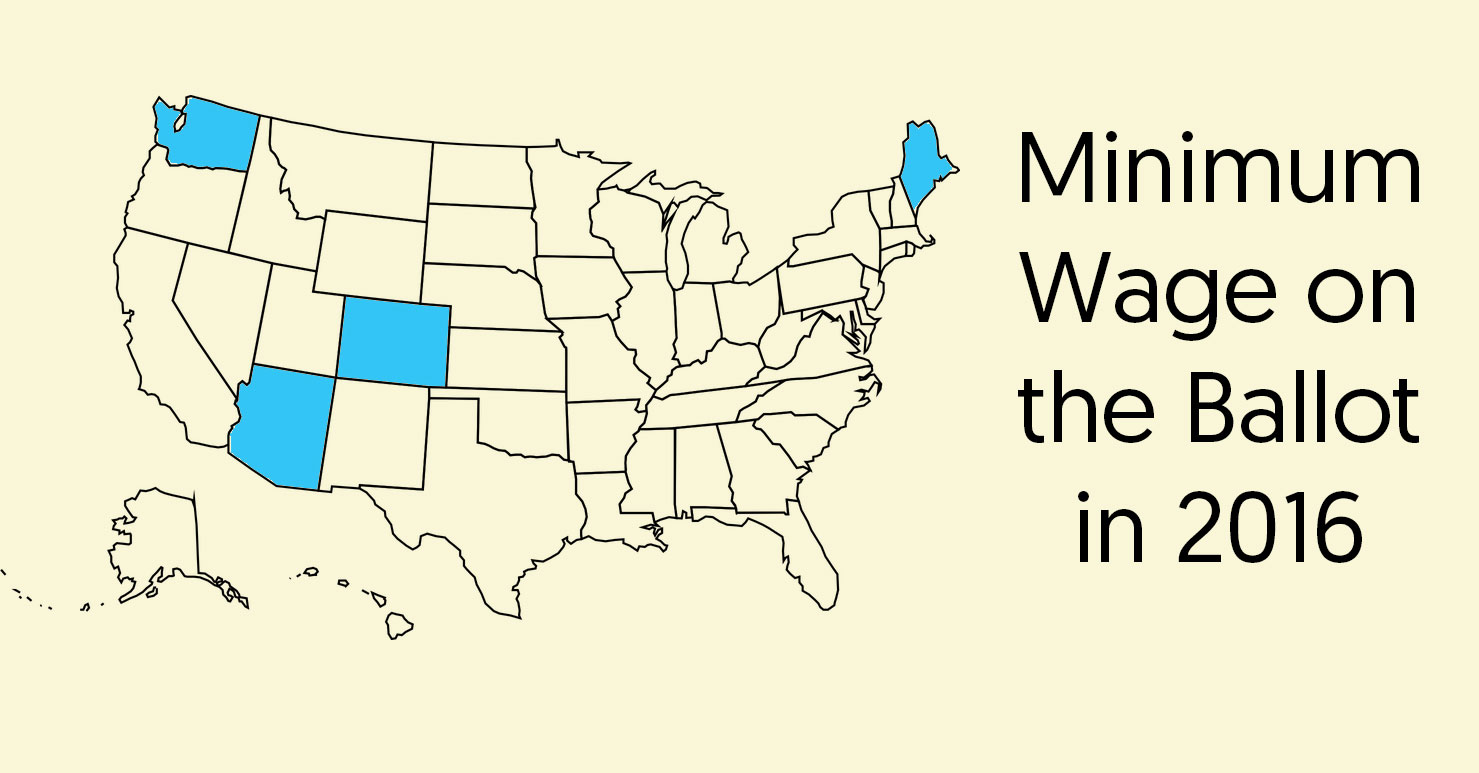Right-Wing Media Attempt Last-Ditch Effort To Smear Raising The Minimum Wage In Four States
Written by Alex Morash
Published

As four states appear poised to pass ballot initiatives to raise their minimum wages, right-wing media are launching an eleventh hour smear campaign falsely claiming that a wage increase will kill jobs and hurt workers.
On November 8, voters will decide in four states -- Arizona, Colorado, Maine, and Washington -- whether or not to raise their state’s minimum wages. While none of the states go as high as $15 per hour, three are pushing for $12 per hour with Washington proposing a $13.50 hourly wage by 2020. If all four states raise their minimum wages it would boost pay for over 2 million workers. As Thinkprogress reported, recent polling shows all four states are on track to approve these initiatives, with Arizona seeing 58.4 percent support, Colorado 55 percent, Maine 57 percent, and Washington 58 percent.
In an attempt to dissuade voters from approving these popular initiatives, Michael Saltsman, the research director of the business front group Employment Policies Institute, attempted to push false claims about the minimum wage in The Wall Street Journal on November 3. Saltsman cherry-picked from a Congressional Budget Office (CBO) report to claim a proposed federal minimum wage increase “would cost the country a half-million jobs” and he pointed to a study by researchers at the University of Washington on Seattle’s phase-in of a $15 per-hour wage to claim the city had seen a loss of employment.
Saltsman failed to mention that the CBO report also found a federal minimum wage increase to $10.10 per hour in 2016 would have boosted net income by $2 billion, raised wages for more than 16 million workers, and lifted 900,000 Americans out of poverty. Furthermore, the CBO’s director at the time, Douglas Elmendorf, made clear in testimony before Congress in March of 2014 that while the CBO considers a wide range of effects on employment, it did not analyze potential job growth from the greater consumer demand created by higher incomes as a result of raising the minimum wage.
Saltsman also did not mention that the study by researchers at the University of Washington ultimately found the Seattle economy saw a “boom in job growth” over the 18 months studied. And when researchers attempted to predict what potential job growth might look like for Seattle without raising wages, researchers found the city created 99 percent as many new jobs with a wage increase than it might have without.
The last minute campaign against raising the minimum wage was also pushed on Fox Business’ Varney & Co. on November 4. Fox host Stuart Varney proclaimed the far-right view that “I just don’t think you should legislate wages period” and guest Anthony Scaramucci claimed raising wages is “a real problem for the youth and this is the reason why you've got [a] 60 percent increase in African-American unemployment in the inner cities.” Scaramucci’s opposition to the minimum wage matches the stance once espoused by Republican presidential nominee Donald Trump, for whom he serves as a prominent fundraiser. Trump claimed during the GOP primary that “wages [are] too high” when asked to offer his opinion on raising the minimum wage.
This last-ditch effort follows an October 28 report from the conservative American Action Forum (AAF) that claimed raising wages in these four states would cost 290,000 jobs. The AAF claim was picked up by both the The Washington Examiner and The Washington Free Beacon. But AAF based its models on a 2015 study by economists Jonathan Meer and Jeremy West that did not actually predict hard job losses. According to the August 2015 study by Meer and West, raising the minimum wage could lead to a reduction in potential job growth but would not lead to “an immediate drop in relative employment levels.”
Counter to right-wing media claims that raising the minimum wage hurts workers, researchers at the Massachusetts Budget and Policy Center found states that raised the minimum wage saw stronger low-wage earnings gains than states that did not raise wages. The right-wing media myth that raising the minimum wage kills jobs has been debunked by studies that found increasing the minimum wage to have a negligible effect on low-wage employment. Researchers at Cornell University found that over the past 20 years, raising the regular and tipped minimum wage for workers in the restaurant and hospitality industries has "not had large or reliable effects" on the number of people working in those industries. Researchers at the University of California, in a March 2015 report for Los Angeles on how a $15.25 minimum wage would affect that metro area, actually found “employment changes" would be “quite small when compared to projected job growth of 2.5 percent a year in the city,” and it estimated that the cumulative effect would be an increase of “5,262 jobs by 2019 at the county level.”
Right-wing media have a history of attacking the minimum wage, giving business executives a platform to push myths about the minimum wage and bemoan the labor victories of workers. Despite the onslaught of misinformation about minimum wages, a majority of Americans support raising the minimum wage and appear to be rejecting right-wing media myths.